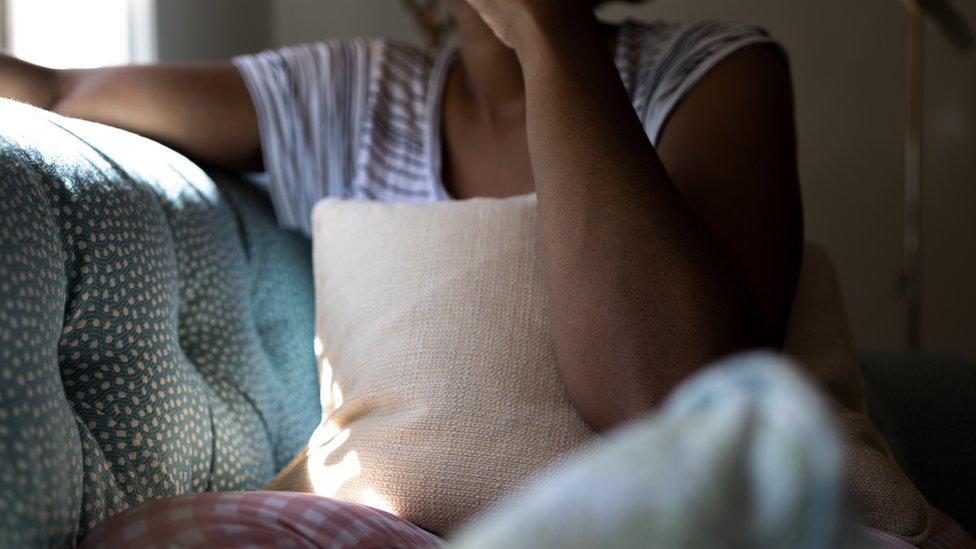Jailing women for abortion 'unlikely to be just'
- Published

The appeal court previously heard Ms Foster was denied contact with her children while in prison, one of whom is autistic
A senior court has said jailing women for abortion-related crimes was "unlikely" to be a "just outcome" after a mother's sentence was reduced.
In a 17-page ruling, the Court of Appeal explained why Carla Foster's prison term was lowered from 28 months to 14 months suspended in July.
The mother-of-three from Staffordshire had admitted illegally procuring abortion pills during lockdown.
The appeal judges found her original sentence had been wrongly calculated.
Ms Foster procured abortion pills in the post from the British Pregnancy Advisory Service (BPAS) after indicating to staff she was seven weeks pregnant, when she was really between 32 and 34 weeks.
On 11 May 2020, after she took the pills, she went into labour and the baby was born not breathing.
The mother was initially charged with child destruction and pleaded not guilty, before admitting an alternative charge of administering drugs or using instruments to procure abortion.
Dame Victoria Sharp, sitting with Lord Justice Holroyde and Mrs Justice Lambert, previously said the case called for "compassion, not punishment".

The Court of Appeal judges said the original sentence had been wrongly calculated before factoring in mitigation
In Wednesday's ruling, the judges noted a similar case of a woman convicted of administering poison with intent to procure a miscarriage where the sentence had been lowered on appeal.
Dame Victoria said: "We consider that in cases of this nature, there will often be substantial personal mitigation to balance against the seriousness of the charge; and that an immediate custodial sentence in such cases is unlikely to provide a just outcome."
'Emotional turmoil'
The judges said Mr Justice Pepperall, sitting at Stoke-on-Trent Crown Court, had wrongly calculated the original sentence before factoring in Ms Foster's mitigation, and it was too high.
Dame Victoria added, while the 45-year-old had not been suffering from a serious mental illness at the time, "there was evidence of an emotionally unstable personality and... no doubt that she suffered emotional turmoil throughout".
She continued: "Ms Foster made admissions at any early stage, and it is doubtful she would have been prosecuted had she not done so.
"In the aftermath of the stillbirth, she was traumatised, and as the judge put it, wracked by guilt and depressed."
The appeal court previously heard Ms Foster was denied contact with her children while in prison, one of whom is autistic.
Dame Victoria said: "By the time of the hearing before us, it was obvious that custody had had a severely detrimental effect on Ms Foster and on her family."
In his original sentencing, Mr Justice Pepperall described it as an emotive case made more "tragic" because she did not plead guilty earlier.
The case prompted campaigners to call for a change to the UK's abortion laws.
If you have been affected by the issues raised in this article, help and support is available via BBC Action Line

Follow BBC West Midlands on Facebook, external, X, external and Instagram, external. Send your story ideas to: newsonline.westmidlands@bbc.co.uk, external
Related topics
- Published18 July 2023

- Published12 June 2023

- Published13 June 2023
